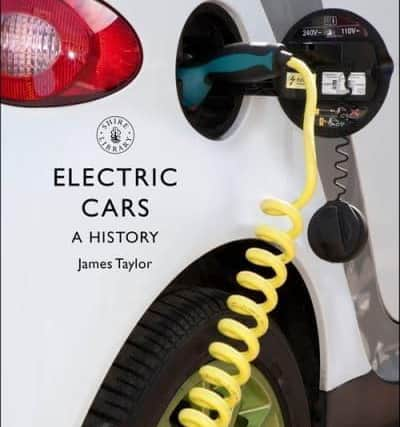Book review: Electric Cars By James Taylor
Battery-powered cars are no new invention, seized upon to provide near zero-emission transport in the age of the climate emergency. In this book, veteran car writer James Taylor charts how, despite being around as long as their petrol-driven cousins, a succession of attempts to bring them to the mass market failed because of technical or financial setbacks.
It’s extraordinary to think that if things had turned out differently, electric cars would by now have been the norm for more than a century, with all the implications for pollution and global warming. Going right back to the technology’s beginnings, Taylor shows that Scotland played a part, as with so many innovations, being credited with producing an experimental electric vehicle as far back as 1839. Although uncredited in the book, it is believed to have been a crude “electric carriage” created by the inventor Robert Anderson.
Advertisement
Hide AdAdvertisement
Hide AdFast-forward 60 years, and if you think the early days of motoring proper at the turn of the 20th century were all about noisy, smoke-belching contraptions, Taylor points out that electric taxi cabs started operating in New York in 1897, with ten manufacturers showcasing no less than 29 electric cars at the first Paris Motor Show the following year.


In 1899, a French model named La Jamais Contente (“the restless one”) set a new record of 65mph, while an electric fire engine was chosen by the Paris fire brigade because of the unreliability of petrol versions.
As Taylor, relates, electric vehicles seemed to have significant advantages, being free of smells, noise and vibration, with no need for hand-cranking to start or tricky gear changes. By 1900, they outsold other types of car, but were dogged by short range, low speed, and then cheaper rivals, with the mass-produced Model T Ford launched in 1908 a third of the price of electric models.
Another significant factor was the discovery of large-scale oil reserves, which further tipped the balance away from electric, but which is frustratingly only sketched over here.
The rest of the book tells of various later abortive attempts to popularise electric traction, including in occupied France during the Second World War, spurred by the shortage of petrol.


Concerns over pollution in the 1960s caused by rapidly-increasing car use triggered a rash of weird-looking electric micro cars pictured in the book, including the two-seater Scamp made by Prestwick aircraft manufacturer Scottish Aviation, which failed because of poor battery life and suspension problems.
While virtually every car maker now offers electric models, it was a surprise to discover Volkswagen first planned an electric version of the Golf as early as 1976, and it worked with other German manufacturers on trials of the technology in the 1990s.
If you don’t already drive electric, you may well be considering it for your next car – and be part of what Taylor describes as the technology’s extraordinary “seismic comeback”.
Electric Cars, by James Taylor, Shire, £8.99
A message from the Editor:
Advertisement
Hide AdAdvertisement
Hide AdThank you for reading this article. We're more reliant on your support than ever as the shift in consumer habits brought about by coronavirus impacts our advertisers.
If you haven't already, please consider supporting our trusted, fact-checked journalism by taking out a digital subscription at https://www.scotsman.com/subscriptions
Comments
Want to join the conversation? Please or to comment on this article.